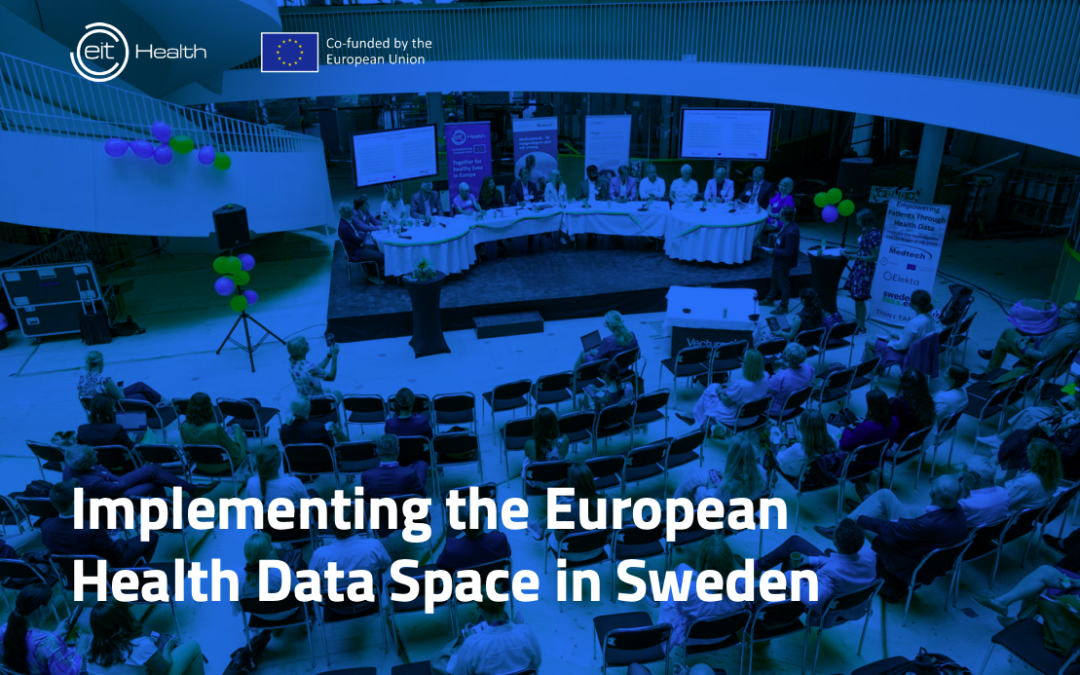Summary
EIT Health is one of eight Knowledge and Innovation Communities (KICs) of the European Institute of Innovation and Technology (EIT) and an Institu- tionalised Partnership under Horizon Europe’s Pillar III – Innovative Europe. Established in 2015 to tackle the societal challenges of ‘health, demographic change and well-being’ within the EU.
The EIT Health Think Tank is a thought leadership forum that brings together experts to prepare the ground for life-changing innovation and to identify the next opportunity for a step-change in how health care is delivered.
In 2023 a pan-European, multi-stakeholder, initiative was conducted to support knowledge sharing and capacity building for a fully operational EHDS that is favourable to health innovation and research. The focus is, in particular, on the secondary use of health data and to shed light on what the needs are in the individual countries in relation to adopting the EHDS. This report focuses on the feasibility of implementation of EHDS in Sweden only.
The Swedish government and parliament support the European Health Data Space (EHDS) but face challenges in its implementation. While Sweden is making progress in building the necessary infrastructure, its legal readiness lags behind the technical readiness. Sweden will be among the last coun- tries to join myHealth at EU1 for this reason. No comprehensive assessment has been conducted yet on the changes to regional legislation that will be required.
Sweden has a strong track record of secondary use of data for research: national registries, statistics, epidemiology, but there is a shortage of skills for extracting data from electronic health records (EHRs). Investments in data infrastructure are needed also new types of collaboration and profes- sional profiles will be needed.
The EHDS is expected to be the costliest among European data spaces. Healthcare professionals are already burdened and need to minimise addi- tional administrative tasks.
Immediate investments are needed in data infrastructure to reduce data access time. Funding should be a collective effort across the health eco- system, and socio-economic models should be developed to secure financ- ing from stakeholders who benefit from the EHDS.
While Sweden has robust national data quality standards for secondary use, primary use settings lack mandatory data quality recommendations. The EHDS can drive improved data quality, but the roles and responsibilities of data stakeholders need clarification.
Efforts to bridge the gap between primary and secondary data use are nec- essary. Incentives for healthcare professionals, automation of data record- ing, and improved digital literacy are crucial. Ensuring EHR interoperability and patient privacy is essential.
Both patients and healthcare professionals need training to understand the health system and improve communication. Demonstrating value for stake- holders, offering legal clarity, and providing guidance are essential steps.


